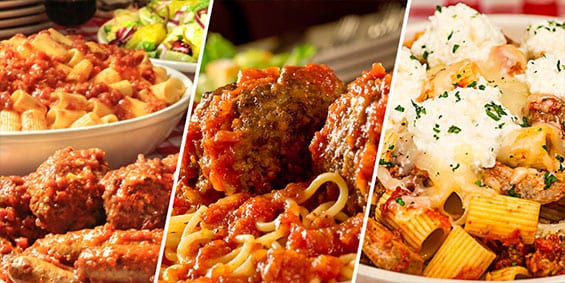Food Attitude: Are you Focused or Indifferent?
Written by Jenn Giamo
Growing up in a food-centric, Italian family, I understand the behavioral and psychological connection to food on many levels. My mom cooked breakfast and dinner everyday. I don’t mean pop-tarts and a Lean Cuisines either. These daily breakfast spreads were something most kids only had on weekends or special occasions. Blueberry pancakes, chocolate chip pancakes, waffles, sunny-side up eggs with buttered toast ... I could go on, but you get the idea.
Dinners were even more carefully prepared. We rarely, if ever, ate the same meal twice in one week. Except for the occasional pizza night, home-cooked was the norm. And whatever the delicious meal of the evening, it was always accompanied by a loaf of crusty Italian bread. A carbo-phob’s nightmare. And if you didn’t like the menu? A “special” dish could be requested as well. And of course, dessert naturally followed dinner - Every. Night.
Now, these meals were served “Family-Style” - which I never knew was a thing. I just thought everyone ate this way. Second helpings? Sure, everything was within reach. You’ve invited 3 friends over? No problem. There was always enough and there were always leftovers.
It wasn’t until I was first invited to a friend’s house for dinner that I realized this was not how everyone ate. After the table was set, her mom began to take the plates into the kitchen. What was happening? I had no idea. Turns out, she was portioning out the food for each of us to eat. I later came to know this as “plating”. It was eye-opening yet left me silently asking if there would be seconds. I think that was the point...there wouldn’t be.
It seems there were families who didn’t care much about food other than for survival. It didn’t even have to taste that good. This was a new concept. A very intriguing one, I came to realize as I studied psychology and nutrition in my college days.
It wasn’t until much later that I began to make the connection between my very thin friends (those who didn’t eat “family-style”) and me. Their relationship with food was much different. Their attitudes and behaviors around eating were not the same as mine. Now, this doesn’t mean that I had a weight problem per se, but I thought about food a lot. Food meant fun and family gatherings and love.
How much space does food take up in your life? Is it at the forefront of your mind or is it an after thought?
In my experience with countless clients over the years, those who put food in the forefront tend to struggle with their weight. This is not a hard rule, but an observation. Then there are those who are so busy that they “forget to eat”. These people are typically not overweight. They can go through the day not putting much emphasis on where their next meal is coming from. They tend to be the thin ones.
While culture and environment play a role in establishing our eating behaviors, we can break the cycle if we want to. As a kid, you may not have a choice as to what and when you eat; you may be coerced into cleaning your plate and then rewarded with dessert if you do. However, as an adult, we have choices. We can decide what, when and (most importantly) how much we eat.
After studying psychology and nutrition, coaching clients on healthy habits and doing some self reflection, I became keenly aware of my own connection to food. Mindless eating and family-style portions became a thing of the past. I tried out new food plans - I went vegetarian, then vegan and now, pescatarian. I don’t obsess over food but I try to be conscious of having a healthy balance and maintaining control. Yes, I endure the endless teasing from my Italian family over my food choices and my incompetence in the kitchen but it doesn’t deter me. I have learned to recognize physical hunger vs environmental triggers and understand that hunger is not an emergency.
Letting go of inherent ideas about food and breaking the emotional connections is not easy. First, you have to want to change your behaviors. Next, you should know why you want to change them. This part is crucial. If you don’t have a reason, then the behavior change won’t stick. It’s important to keep coming back to the “why” and drill down from there. Every time you are faced with a food choice, remember your “why” and then decide.
Start asking yourself questions. Do you hold onto intrinsic patterns or destructive food behaviors? Can you identify what they are? If you take a step back and analyze, maybe you’ll gain a new perspective.
